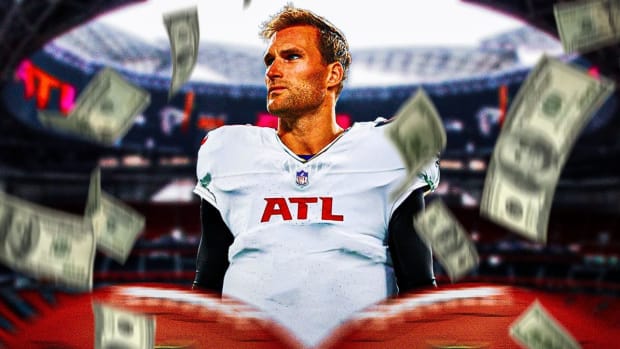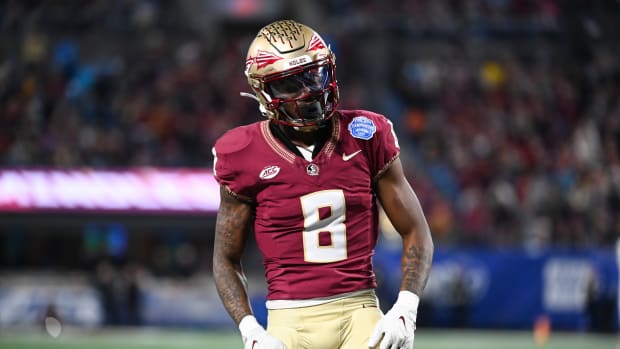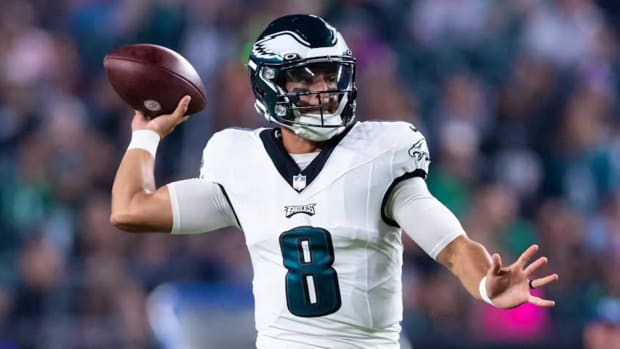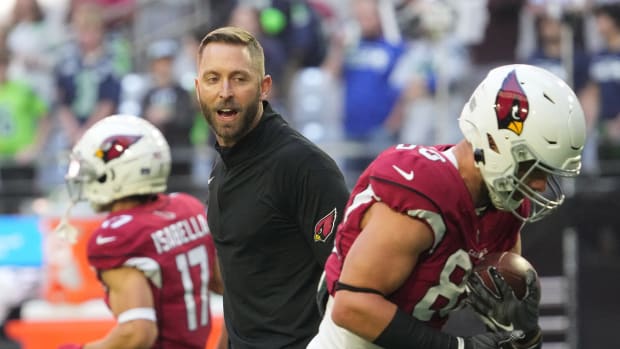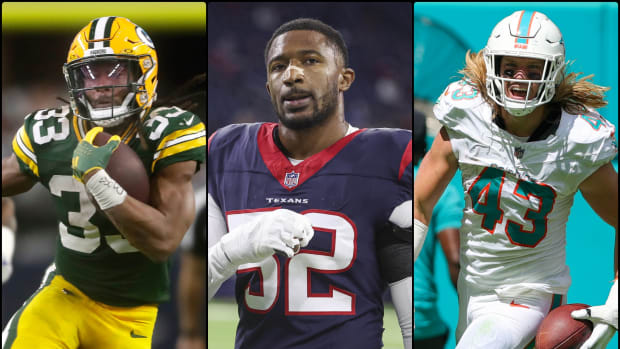We All Expect Jerry Jones to Fire Mike McCarthy, But Only Because It’s the Cowboys
Moments after a 48–32 playoff loss to the No. 7 seed may not be the best time to bring it up, but I’ve developed quite a bit of sympathy over the years for Mike McCarthy—or, really, anyone who holds the job title of Dallas Cowboys head coach.
Look closely and you’ll realize it is not just the pressures of the market and the job, but it is the nebulous atmosphere created by owner Jerry Jones that makes performing well next to impossible. Jones has, to his credit, been patient with coaches. He allowed Jason Garrett a three-year runway of 8–8 records before Garrett even made the playoffs. Garrett was there for nine seasons and never made it past the divisional round. And now, everyone is assuming that McCarthy, who has posted three straight 12–5 seasons, will receive COBRA paperwork before the Packers’ plane makes it back to Green Bay. Firing McCarthy would be ridiculous, but take a look around.
Is it unfair for an owner to wear the burden of what we believe he might do, or what we somehow believe he is thinking based on our collage of bemused faces in screenshots of a luxury box? In most cases I would say yes. In this particular case, I would say that there needs to be a kind of active shift on Jones’s part that can, in turn, tone down the rhetoric outside the building.

McCarthy has made three straight trips to the playoffs, with only one wild-card win to show for it.
Kevin Jairaj/USA TODAY Sports
The older Jones gets, the more he does nothing to tamp down this idea that he desires to win another Super Bowl as a kind of final act. It’s quixotic and, sure, a little beautiful, but it’s also wholly unrealistic and it produces this strange alternate universe where we judge someone on their ability or inability to please an 81-year-old and not on an actual body of work. This could set in motion the beginnings of a kind of cyclical process that involves installing more experienced coaches with stronger pedigrees whom Jones believes can achieve that goal with this current roster—which is obviously the goal of every team, but is subject to so many variables—and placing those coaches into a tighter and tighter vice grip with a shorter amount of time to succeed. Back out of the vortex for a minute, remove the famous star from the helmet, delete everything we know about the Cowboys and Jones, and ask yourself whether firing McCarthy is a reasonable reaction, or simply a reaction we have arrived at because Jones has conditioned us to think that way about himself and what he might do.
To me, firing McCarthy would back Jones into a position where he has no other option but to make a run at Bill Belichick. Say what you will about McCarthy, but his team had the best offense in football in 2021 and one of the 10 best defenses; one of the best offenses and defenses in the NFL in ’22; and, again, one of the best offenses and defenses in the NFL in ’23. This year, after McCarthy reclaimed play-calling duties, Dallas led the league in points, first downs and passing touchdowns.
This isn’t a “Save McCarthy” column, per se. The man isn’t perfect, as evidenced by a stunningly flat game plan Sunday. The Cowboys’ schedule this year was horrendously soft, and they did often bury their collective heads in the sand against superior opponents. The gulf between Dallas and the No. 1 seed San Francisco 49ers is wider than the Caspian Sea.
But this is a kind of warning to Jones that firing McCarthy could make him the football equivalent of the Once-ler from The Lorax. Chopping down every good coach in the NFL isn’t going to get you a Super Bowl; it’s going to get you a barren candidate pool and no chance of bowing out with another Lombardi Trophy.
That’s where Belichick comes in. On Jones’s prospective trajectory, the legend would be the only person in possession of the résumé he seeks—having previous Super Bowl victories—and the only person available. But if only the coach changes, and the interplay between the owner and the coach, between the owner and the public, between the owner and himself, remains the same, Jones would just be signing up for a different set of complex, less-than-optimal dynamics.
You’ll ask: What is Jones supposed to do? And I’ll admit that there’s a bit of defeatism at play here. Every owner should desire to win the Super Bowl every year. But, there is a difference between laying the realistic groundwork for that push and deciding that the groundwork has already been laid because you’re ready to win one. Dallas is a good football team with a star edge rusher, Micah Parsons, who is schemed well by a great defensive coordinator, Dan Quinn. The Cowboys’ offensive line is also very good. CeeDee Lamb is a great wide receiver, and Dak Prescott is a top-10 quarterback, regardless of where he is amid his highs and lows. But we can say similar about the Los Angeles Chargers; the Cowboys are absolutely better, but I hope you can see my point.
A healthier approach may be studying the differences between the Cowboys and 49ers, or between the Cowboys and Baltimore Ravens. More effective than firing a head coach, or even allowing that energy to permeate publicly, would be pouring resources into finding more organizational edges.
It would be great for Jones to get a Super Bowl, but if the choice is between continuously slamming this iteration of the roster into the microwave, passively blaming the coach and searching for someone who can realize this roster’s full potential, and wondering why this issue of underperformance has existed since the late 1990s, the choice is clear. A Super Bowl is great. But, a Super Bowl as the result of a healthier process, a path that leaves the Cowboys better off, is a far greater legacy capstone.

































